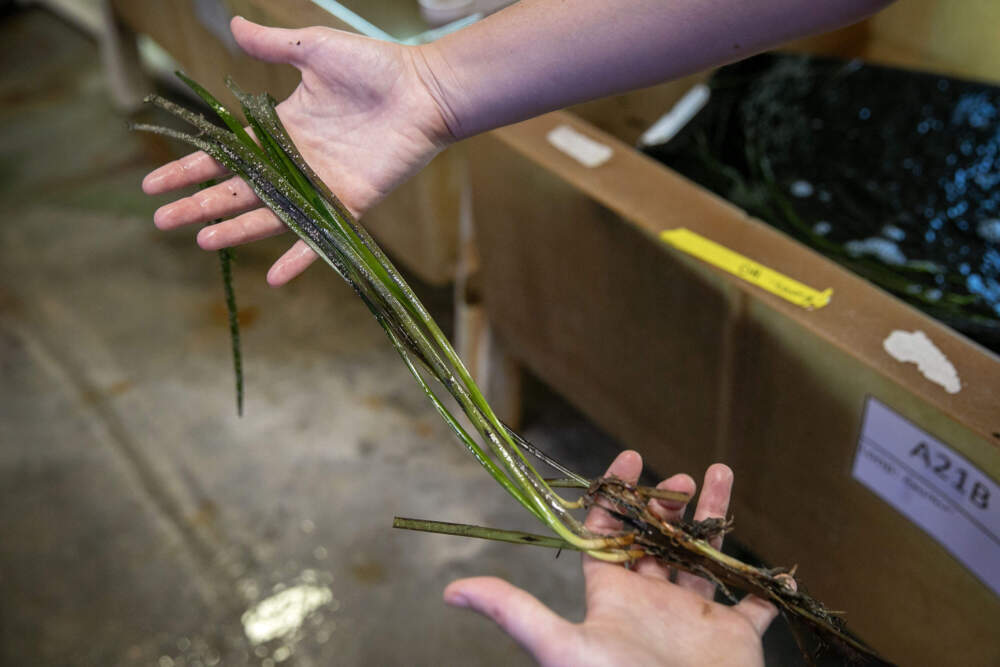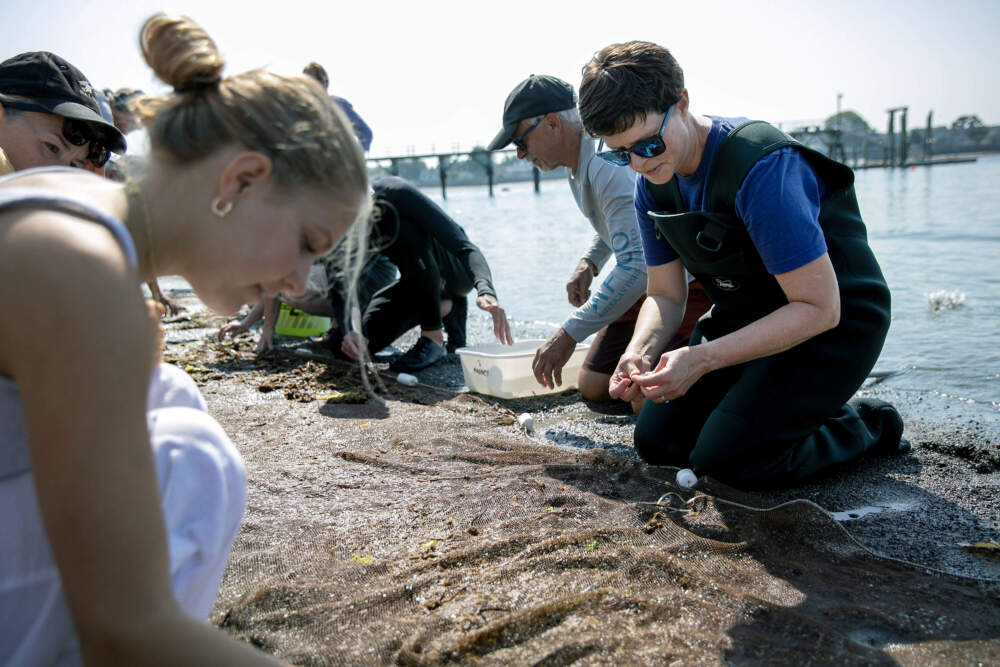Advertisement
Does Mass. need an official marine flora? Eelgrass fans say: Yes

Massachusetts already has an official state muffin (corn), beverage (cranberry juice) and game bird (wild turkey), among many other state symbols. Now eelgrass may become the official marine flora of Massachusetts.
The effort is thanks to two North Shore teenagers — and a handful of eelgrass supporters — seeking recognition for this little-known, but important, plant. The teens proposed a bill that received a committee hearing this month and, they hope, will eventually come to a vote in the full Legislature.
"Even though seagrasses are ecologically as important as things like kelp forests and coral reefs and salt marsh ecosystems, people know a lot less about them," said Randall Hughes, a marine biologist at Northeastern University and mother of one of the teenagers behind the project. "This bill is just one piece of the puzzle, trying to get people more aware of what seagrasses are and what benefits they provide."
Eelgrass is the dominant species of seagrass in New England, growing in wavy meadows just off the coast. The plant is an ecological powerhouse. The meadows serve as nursery habitat for fish and shellfish; they protect against coastal erosion by absorbing energy from waves before they hit the coast; and they help keep climate-changing carbon out of the atmosphere by storing it in sediment.

But eelgrass faces multiple threats, including boat moorings, water pollution, and climate change. Massachusetts has lost about half its eelgrass in the last 20 years, and the plant is now the subject of conservation efforts.
One of the largest intact eelgrass meadows on the North Shore is in Swampscott. Swampscott Conservancy President Toni Bandrowicz reached out to local marine biologist Hughes, and floated the idea of legislation to recognize eelgrass as an unsung hero of coastal ecosystems.
Hughes pitched the idea to her son James Kimbro, then a junior at Swampscott High School. To her surprise, he was interested. He paired up with classmate Colette Heil, and they ran with it, collecting signatures and letters of support. The bill was proposed in January.

State Senator Brendan Crighton, who represents Swampscott and several neighboring towns, said in an email that he was proud to co-sponsor the bill.
"Eelgrass is an essential component of preventing the erosion of coastlines throughout New England, and ensuring its recognition and protection will help our fishermen and coastal communities," he wrote.
Heil, who said she was drawn to the project through her interest in science, said she was surprised by the pace of moving a bill through the legislature.
"It's more of a drawn-out process than I thought it would be," she said.
This bill has been referred to the Joint Committee on State Administration and Regulatory Oversight and is open for public comment. Unlike the heated battle for Massachusetts state dinosaur, eelgrass has faced no competition for the state marine flora title so far. (Though there's still time for the widgeon grass fans to throw a hat in the ring.)
And Kimbro said he hasn't heard about any pushback from eelgrass haters, whomever they may be.
Advertisement
"We haven't come across any yet," he said. "It's not that controversial."
Kimbro said the bill, should it become a law, won't give eelgrass any extra protection. But hopefully it will help raise awareness.
" I mean, before this project, I honestly didn't know it was up here," he said.
